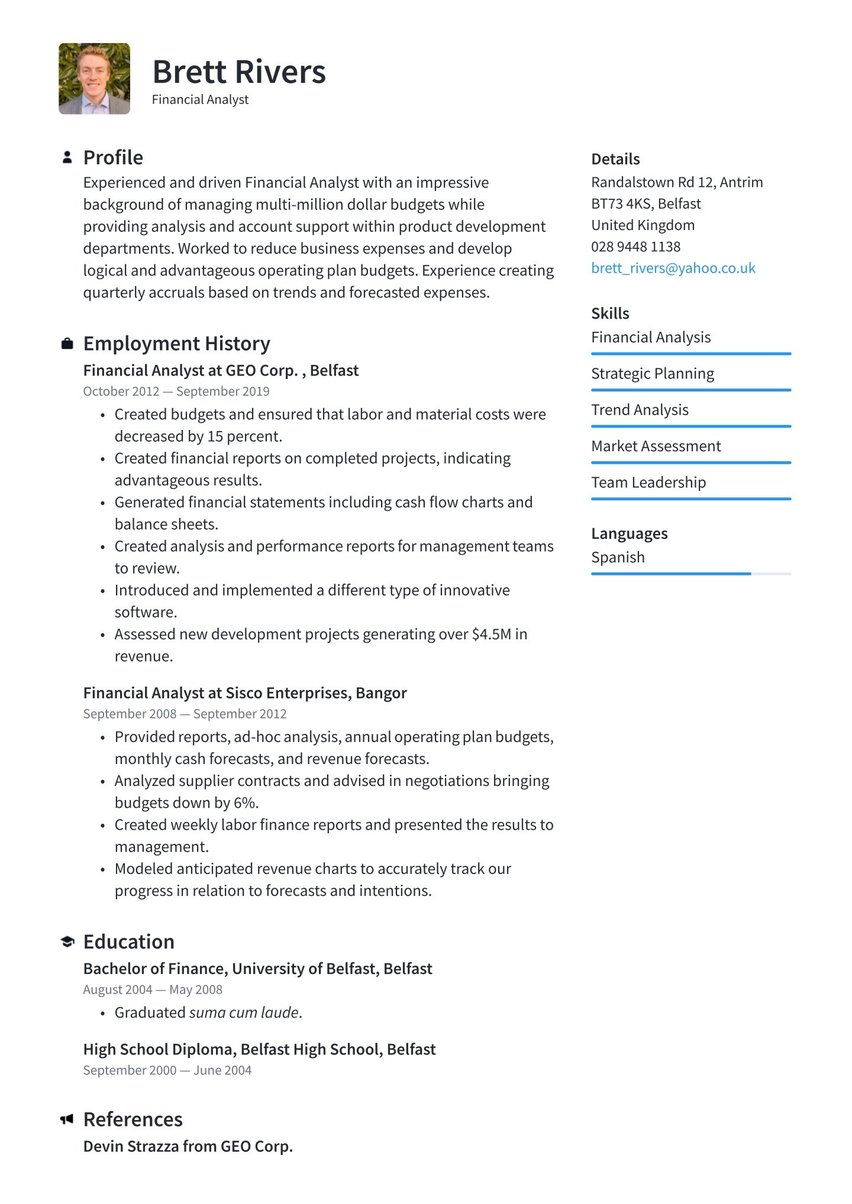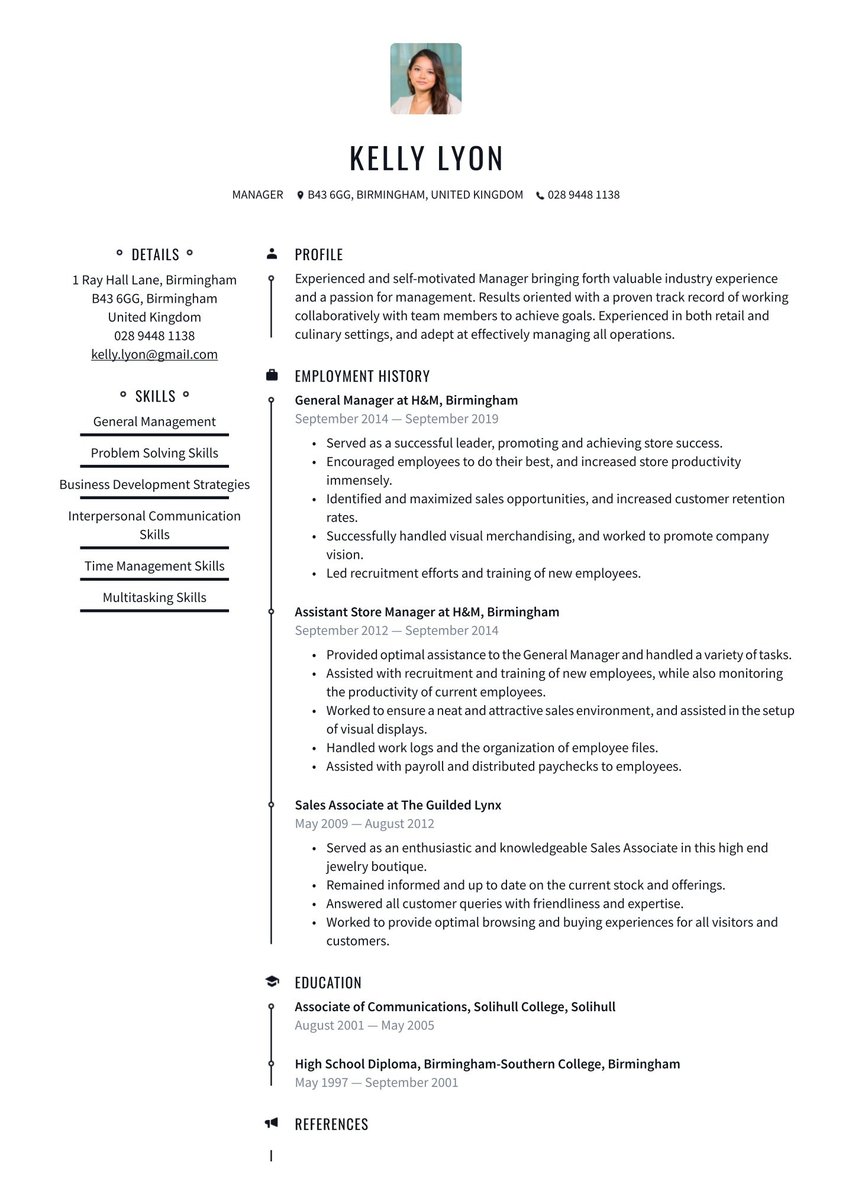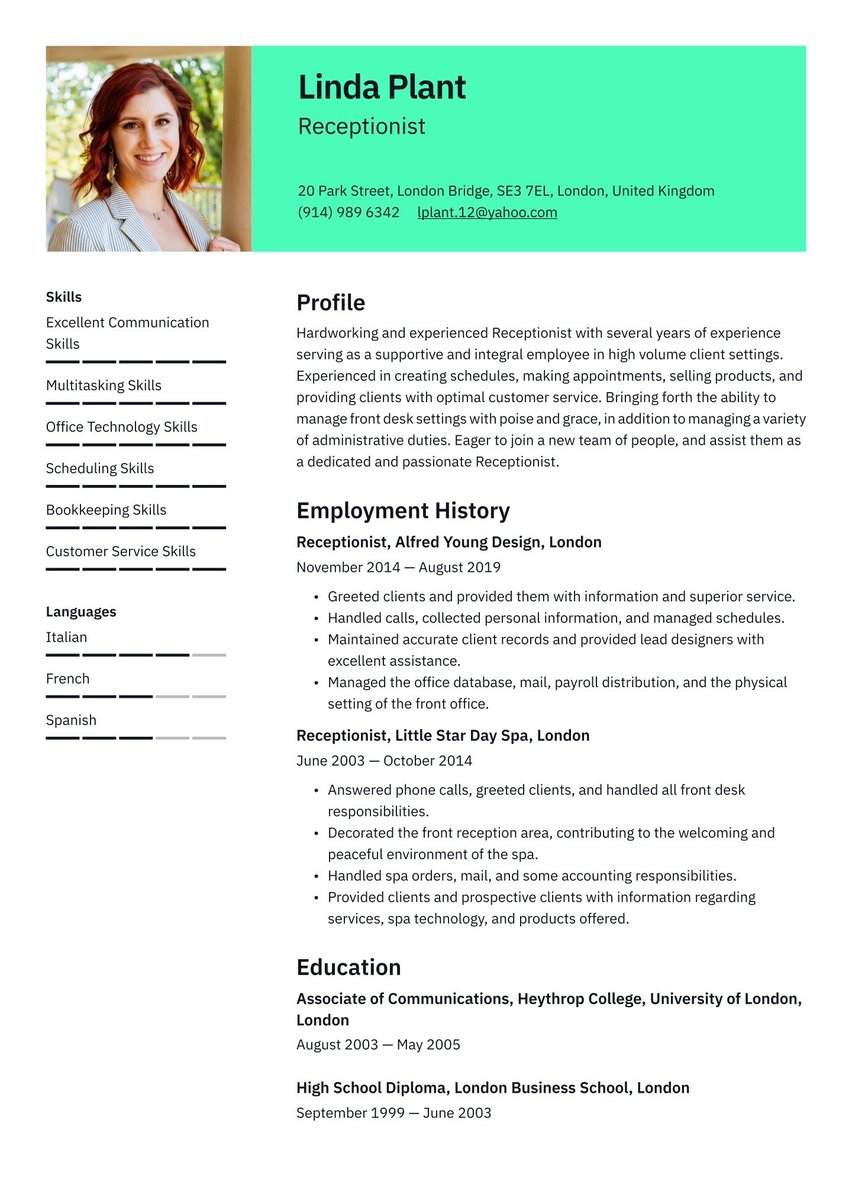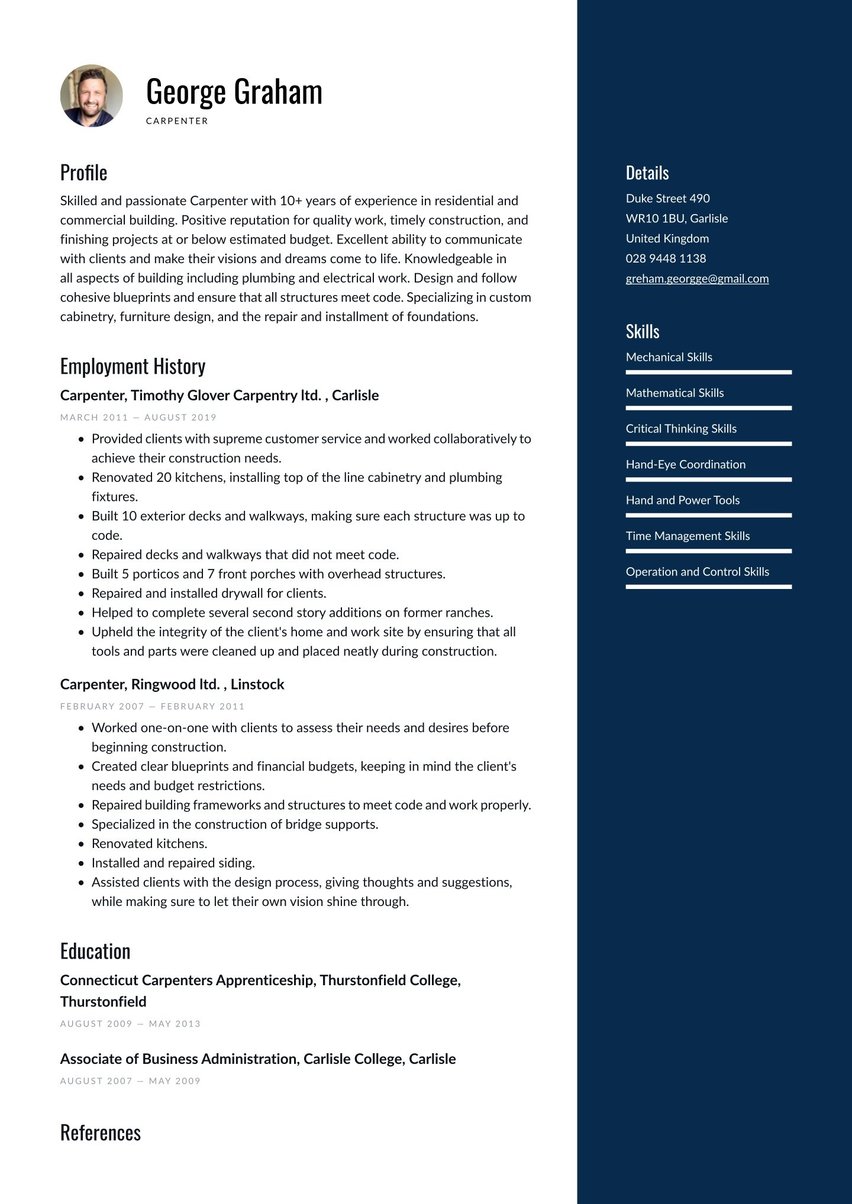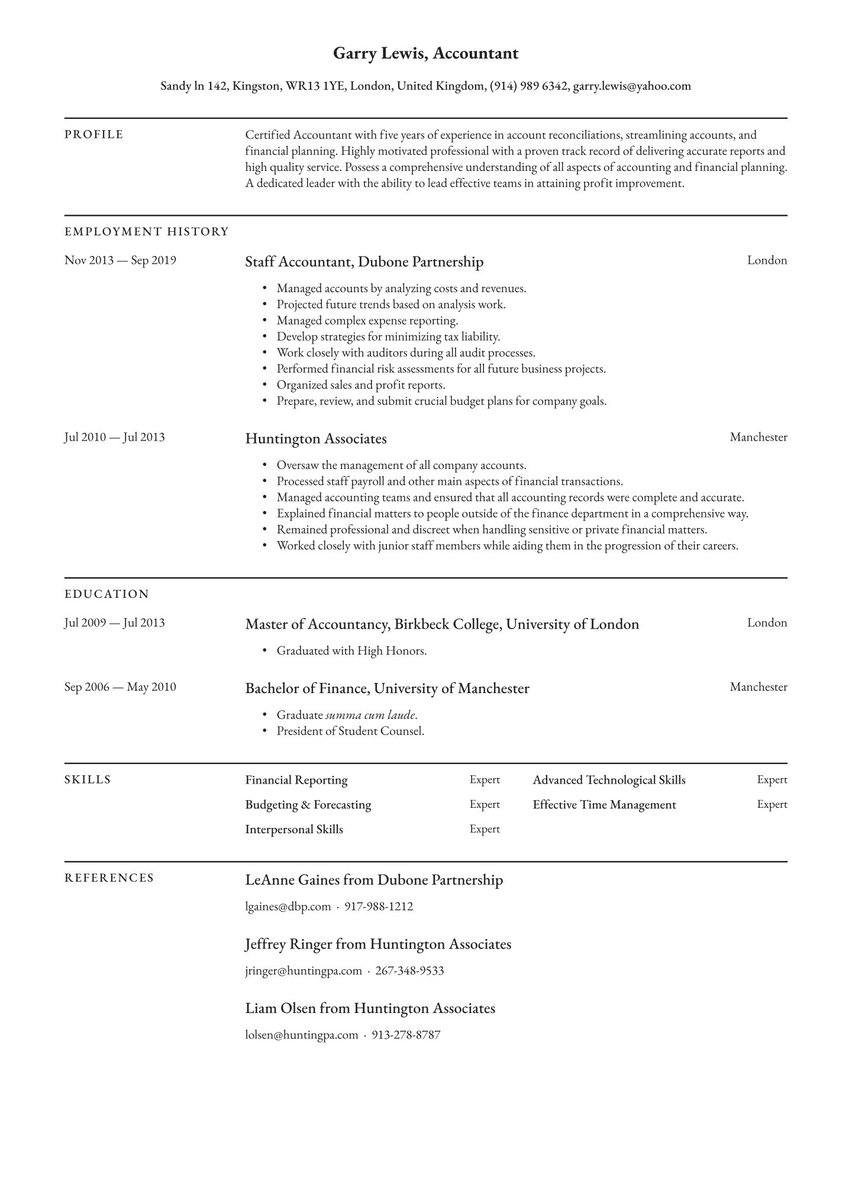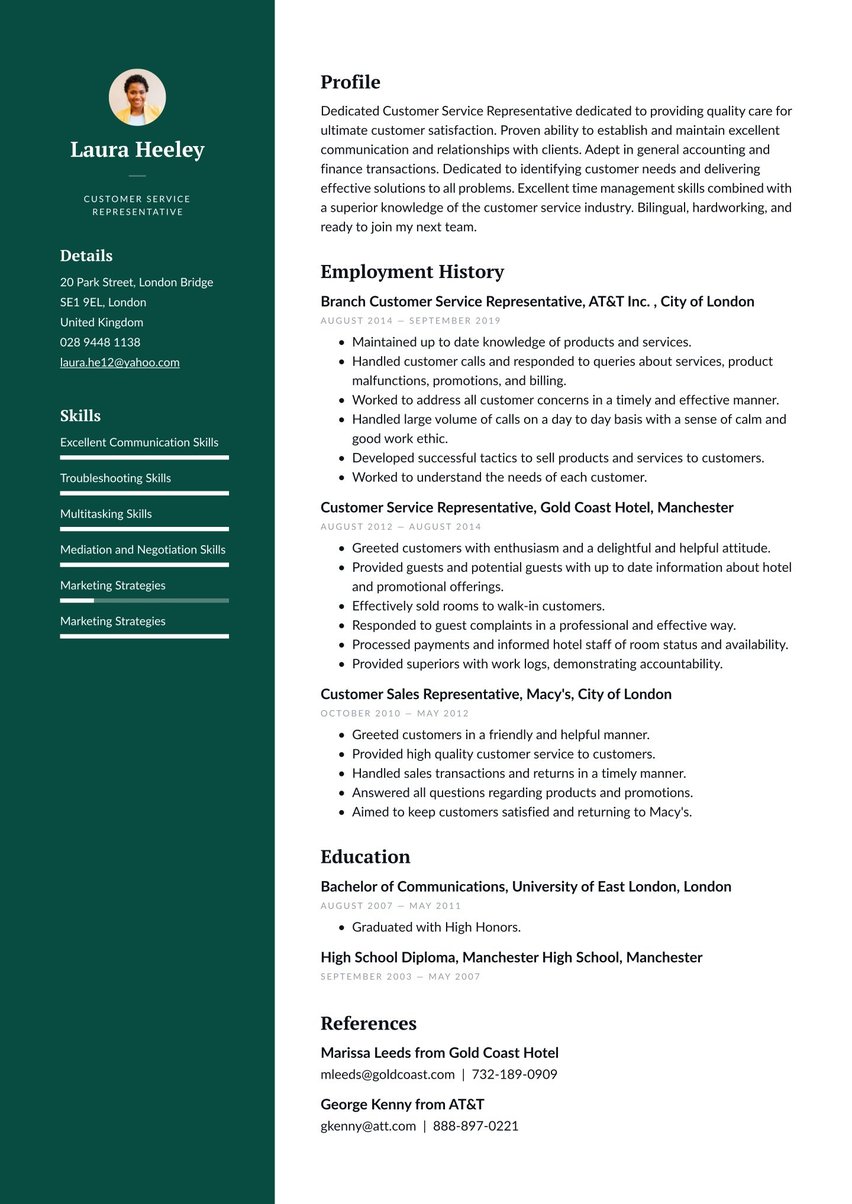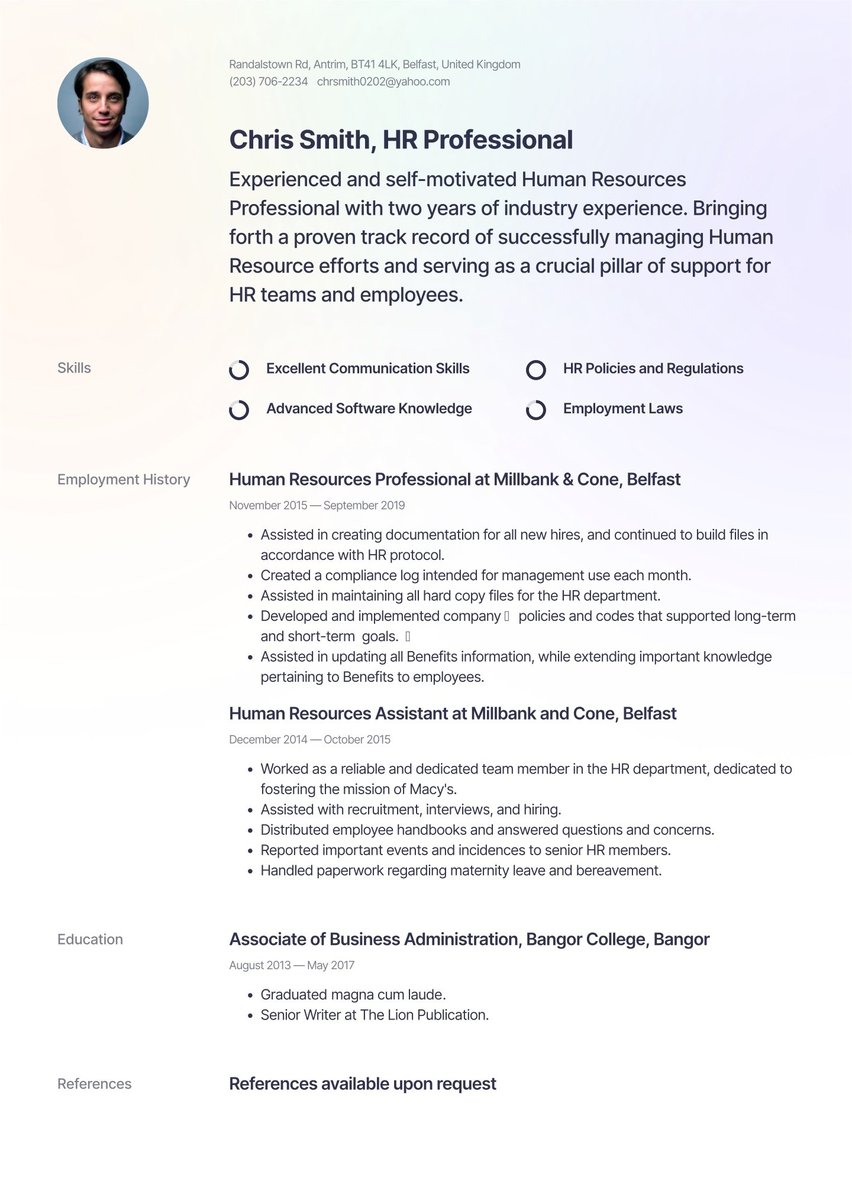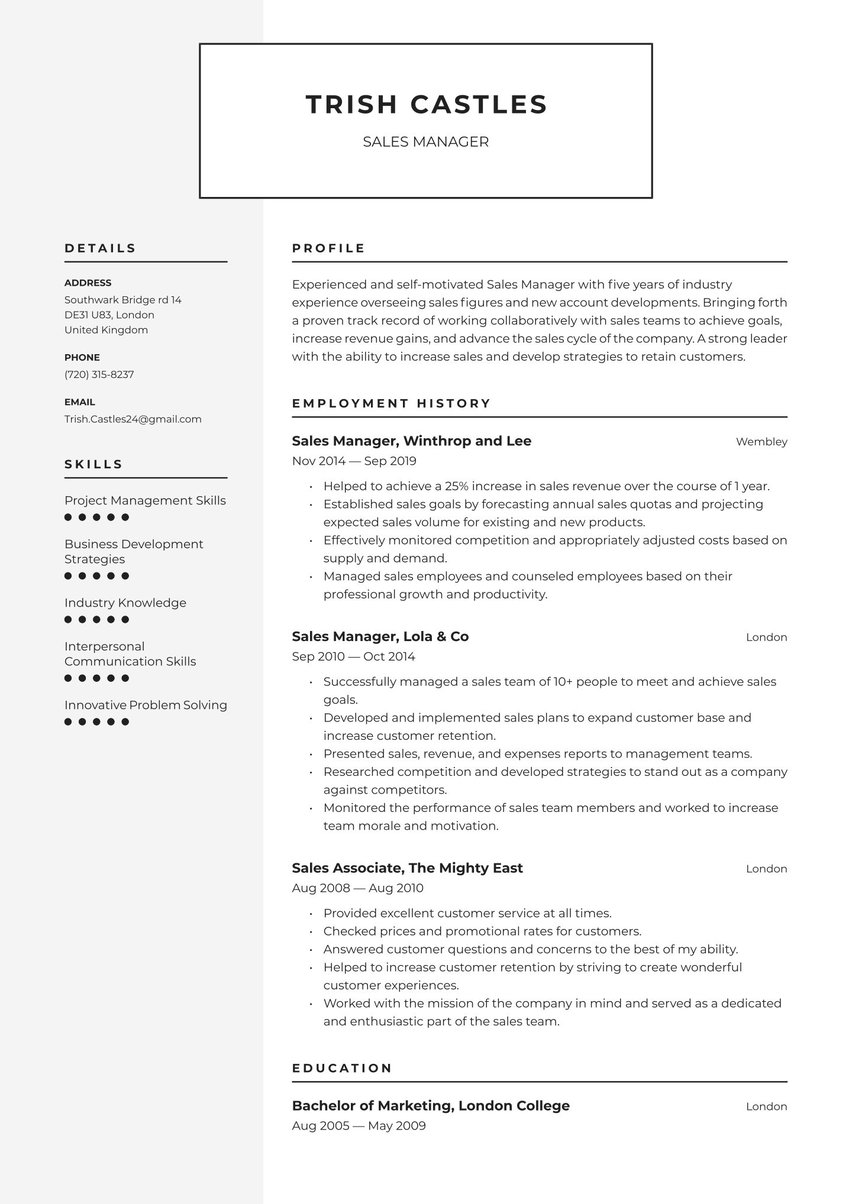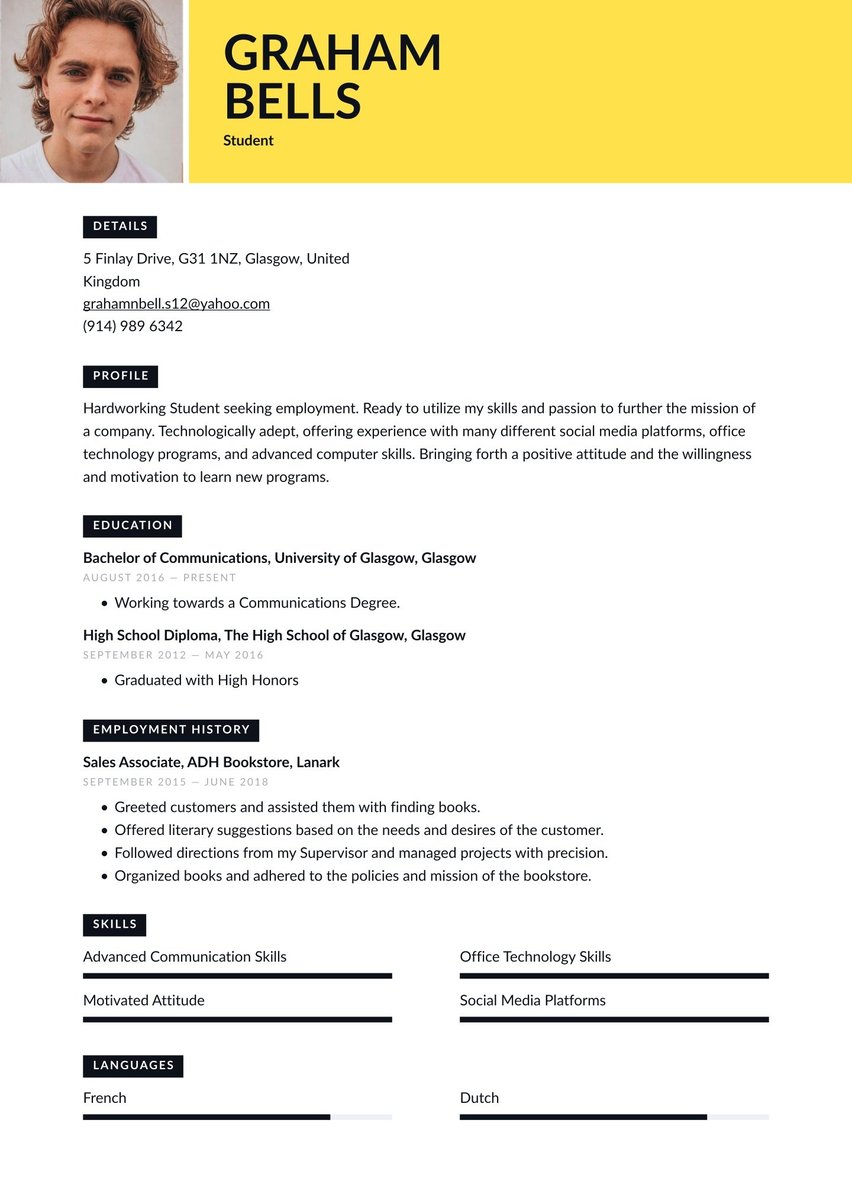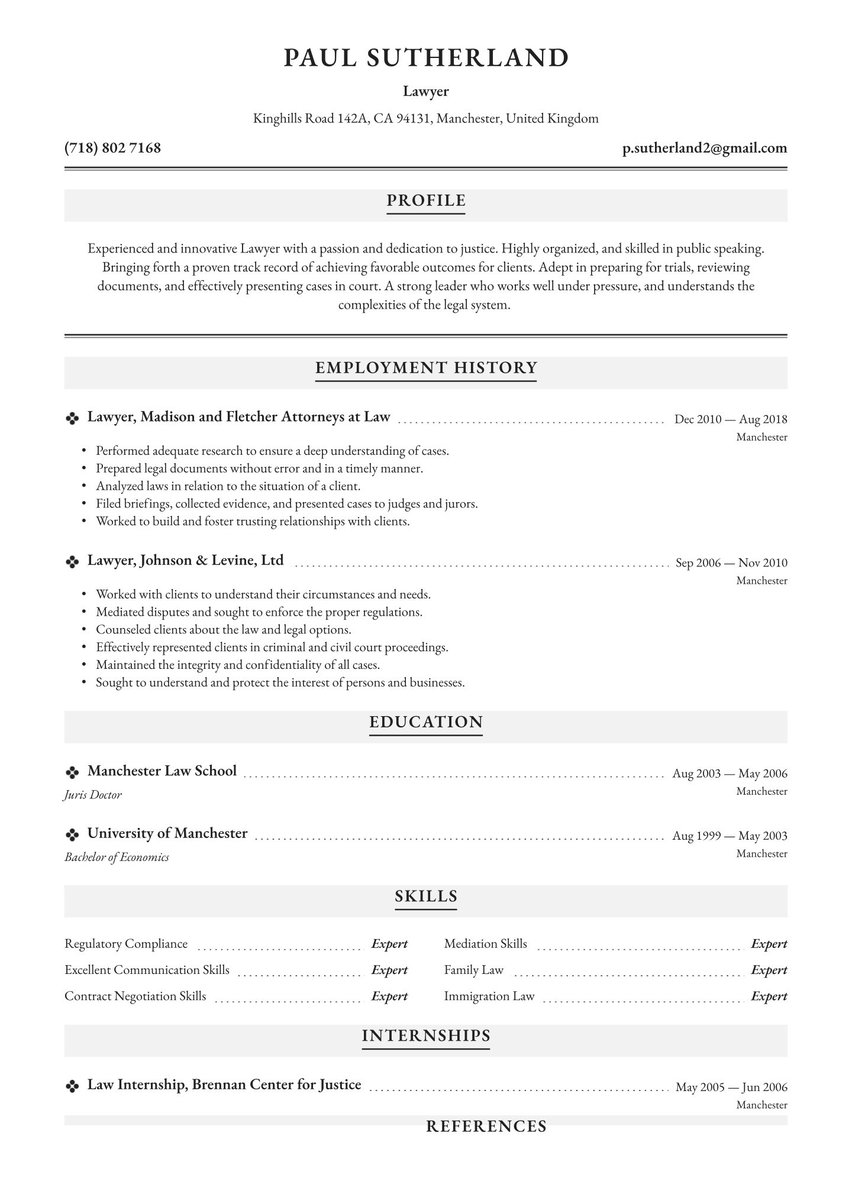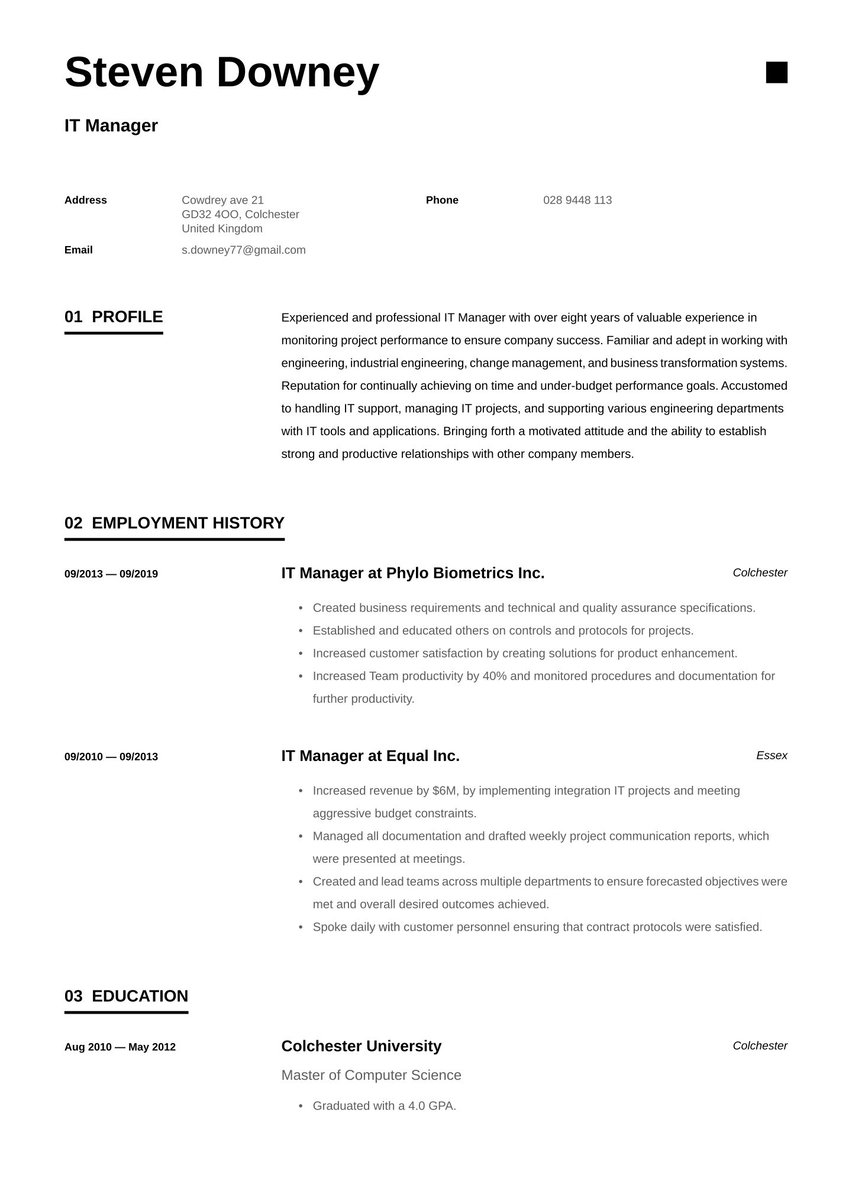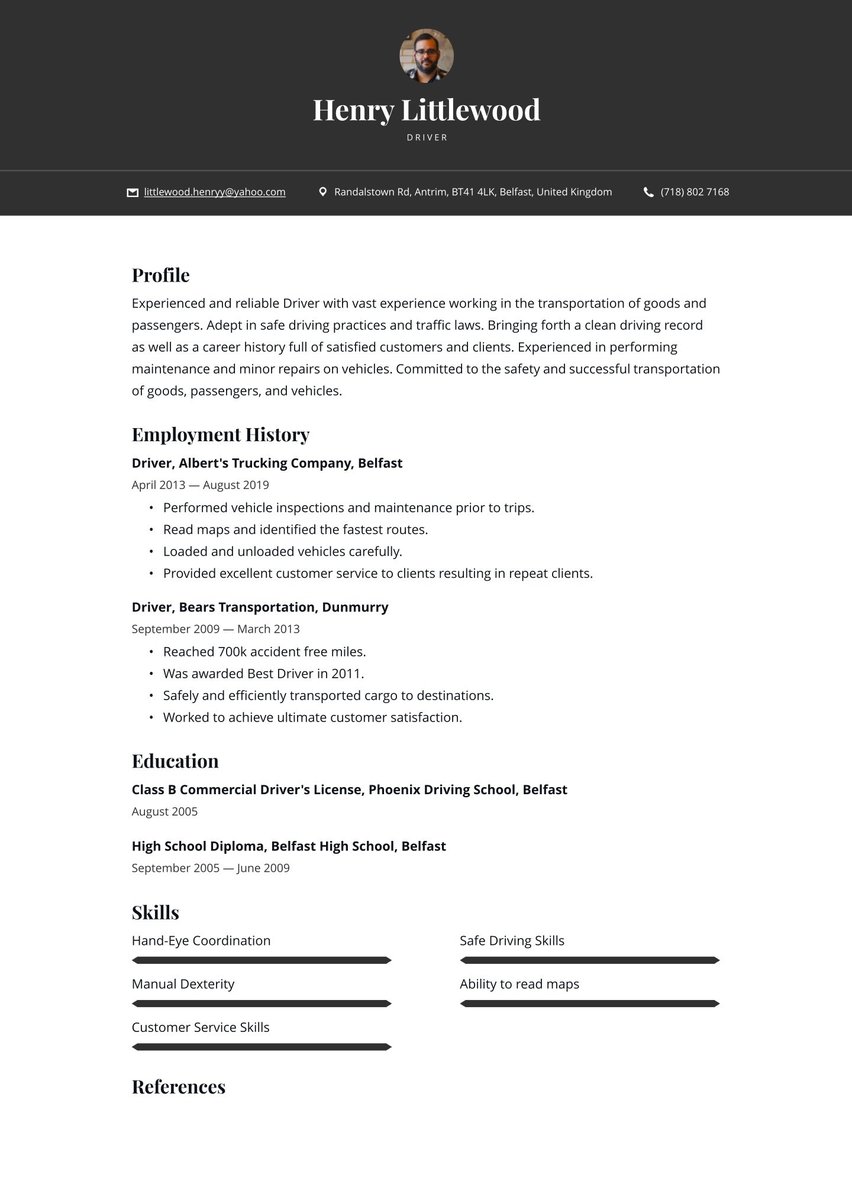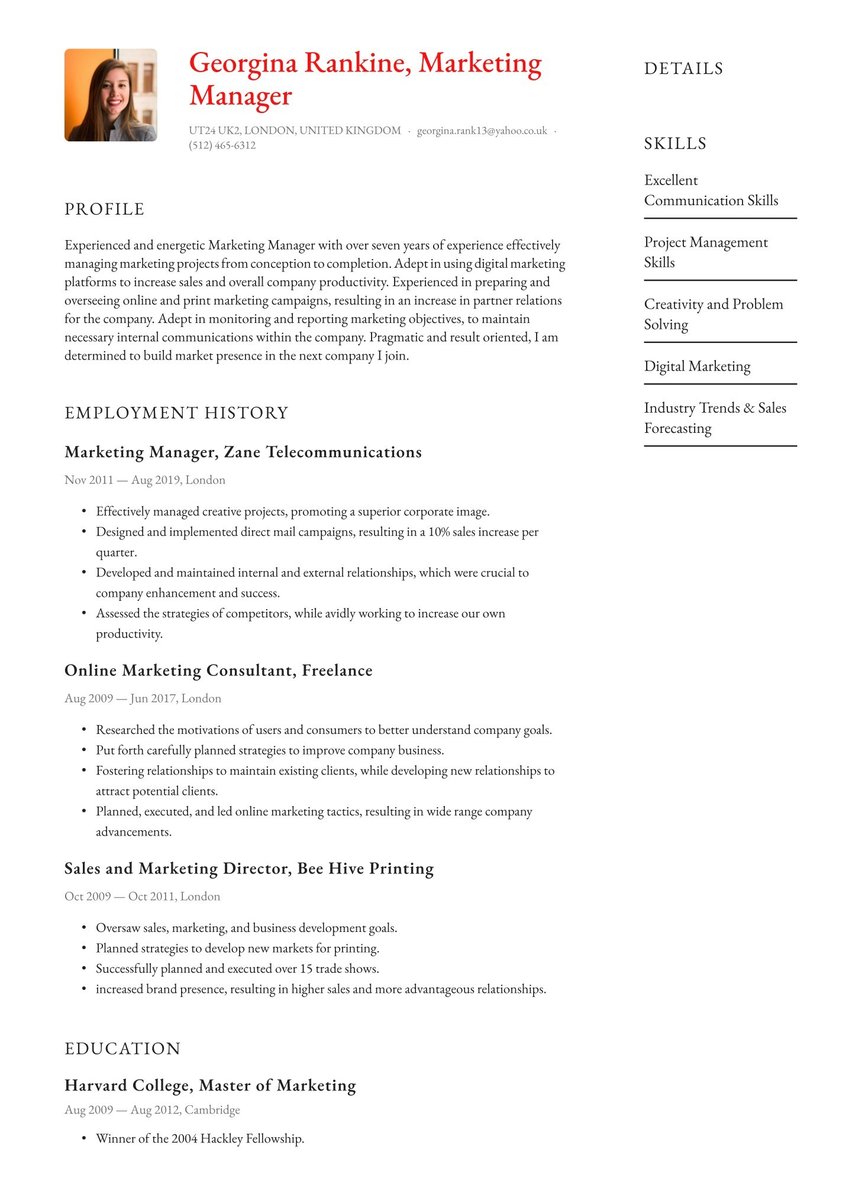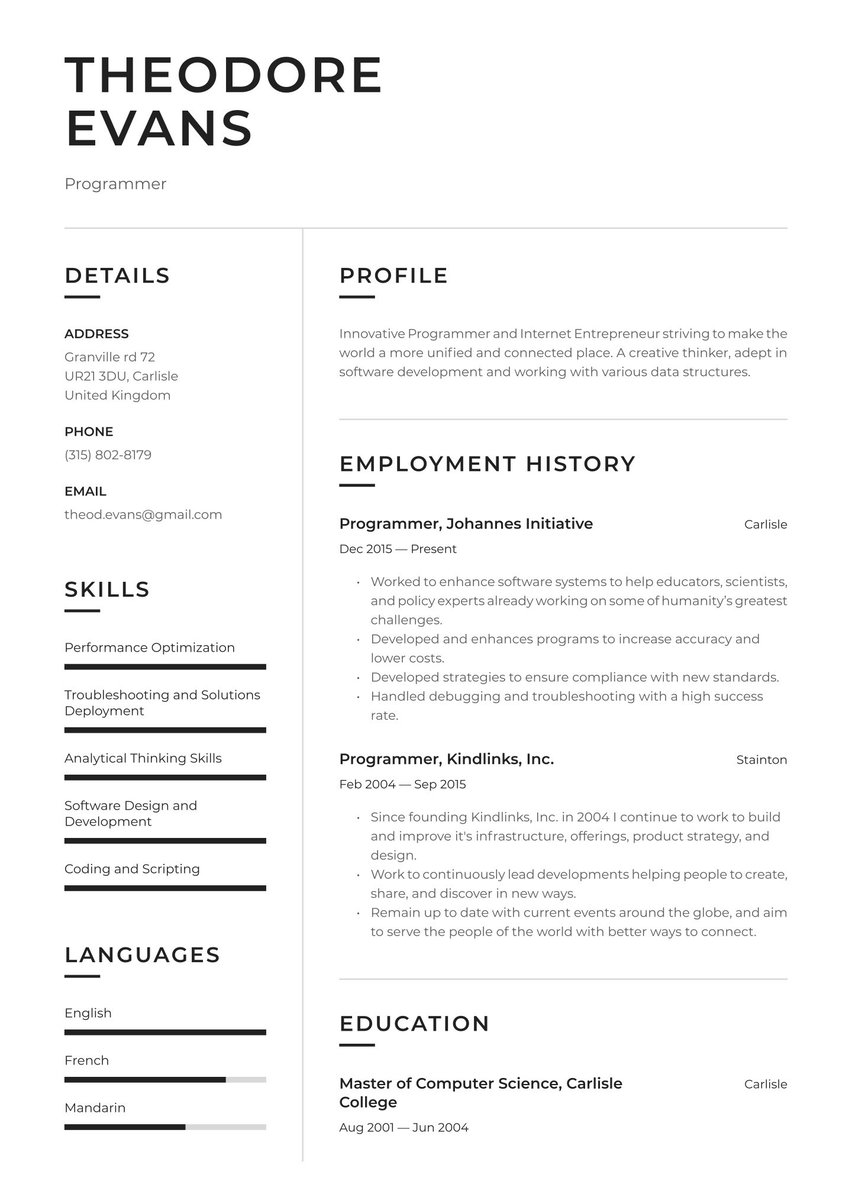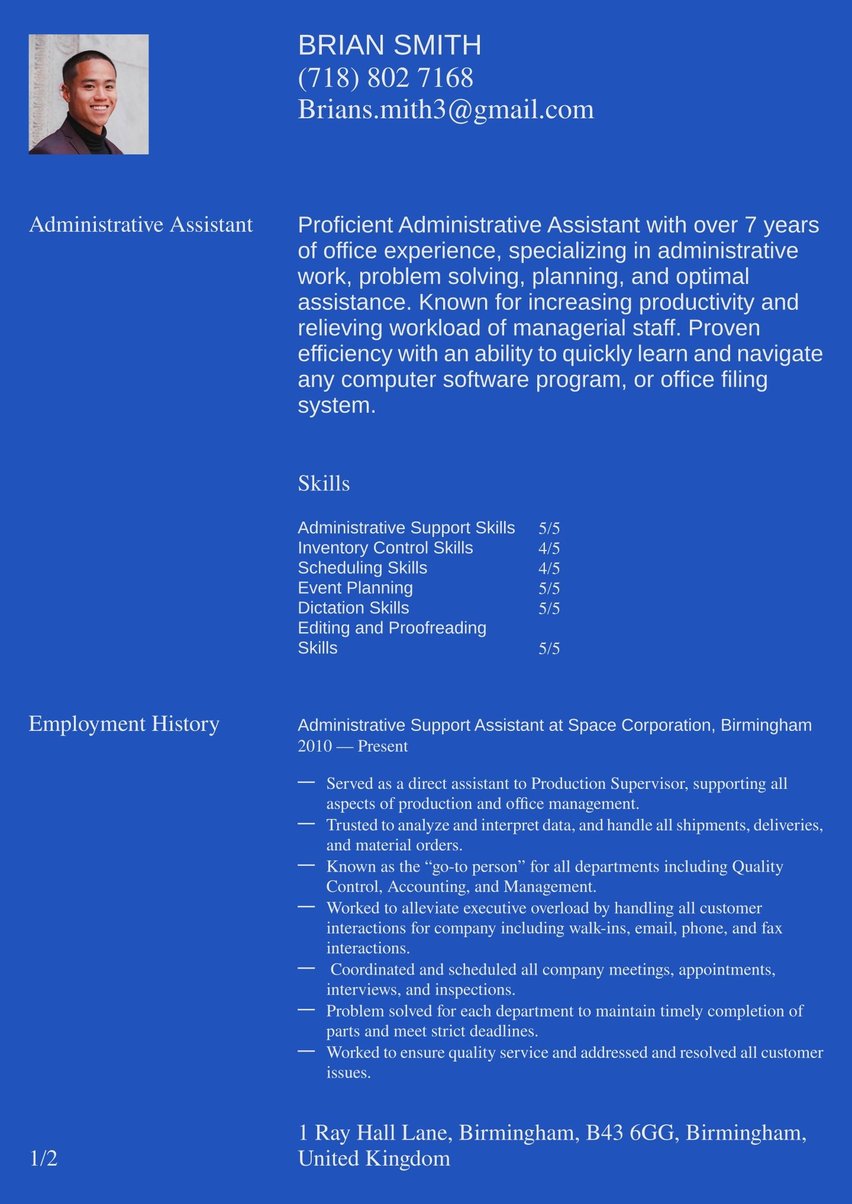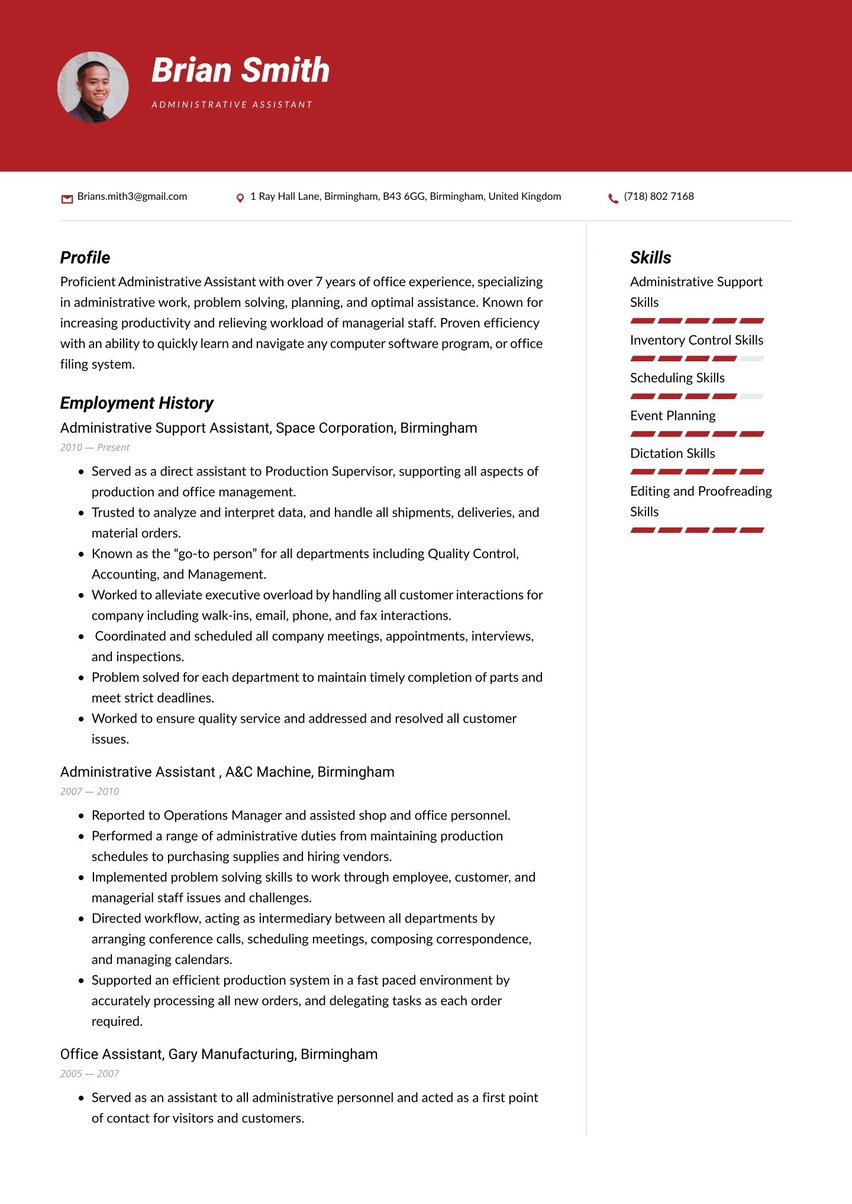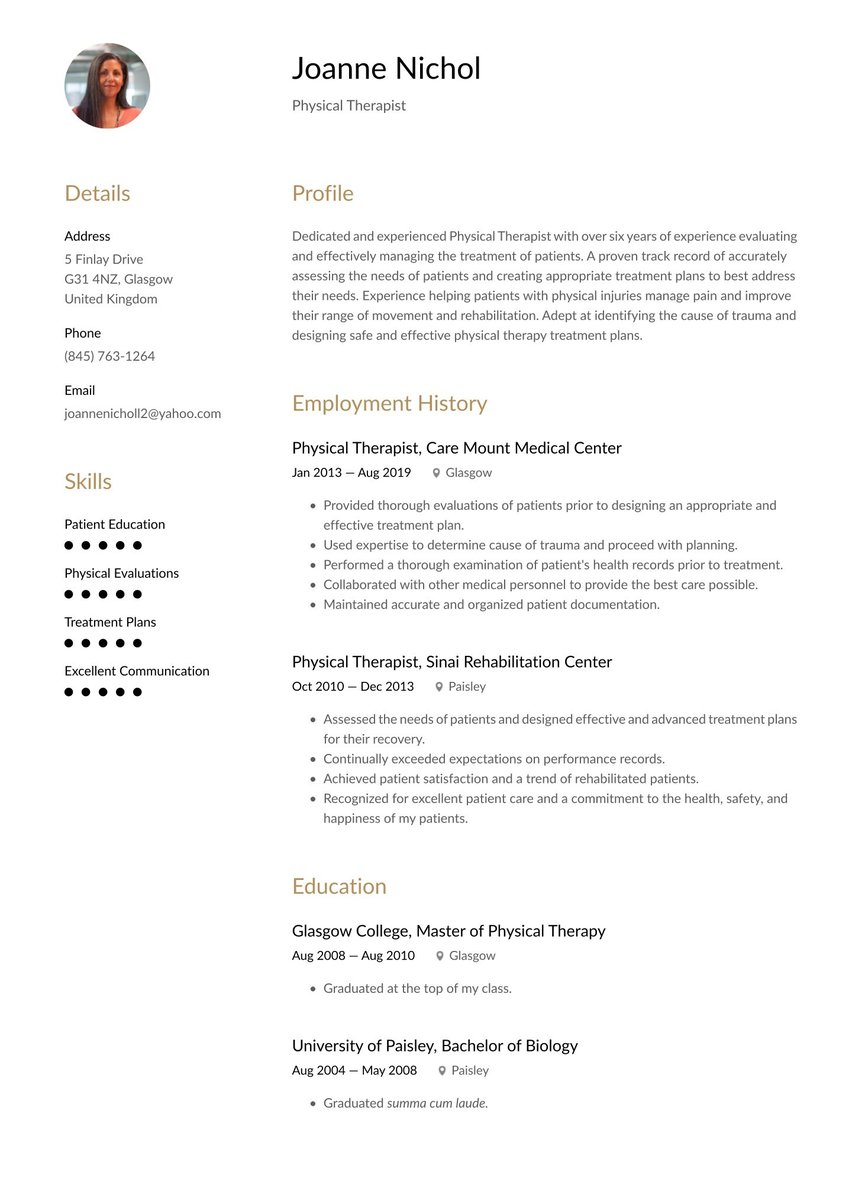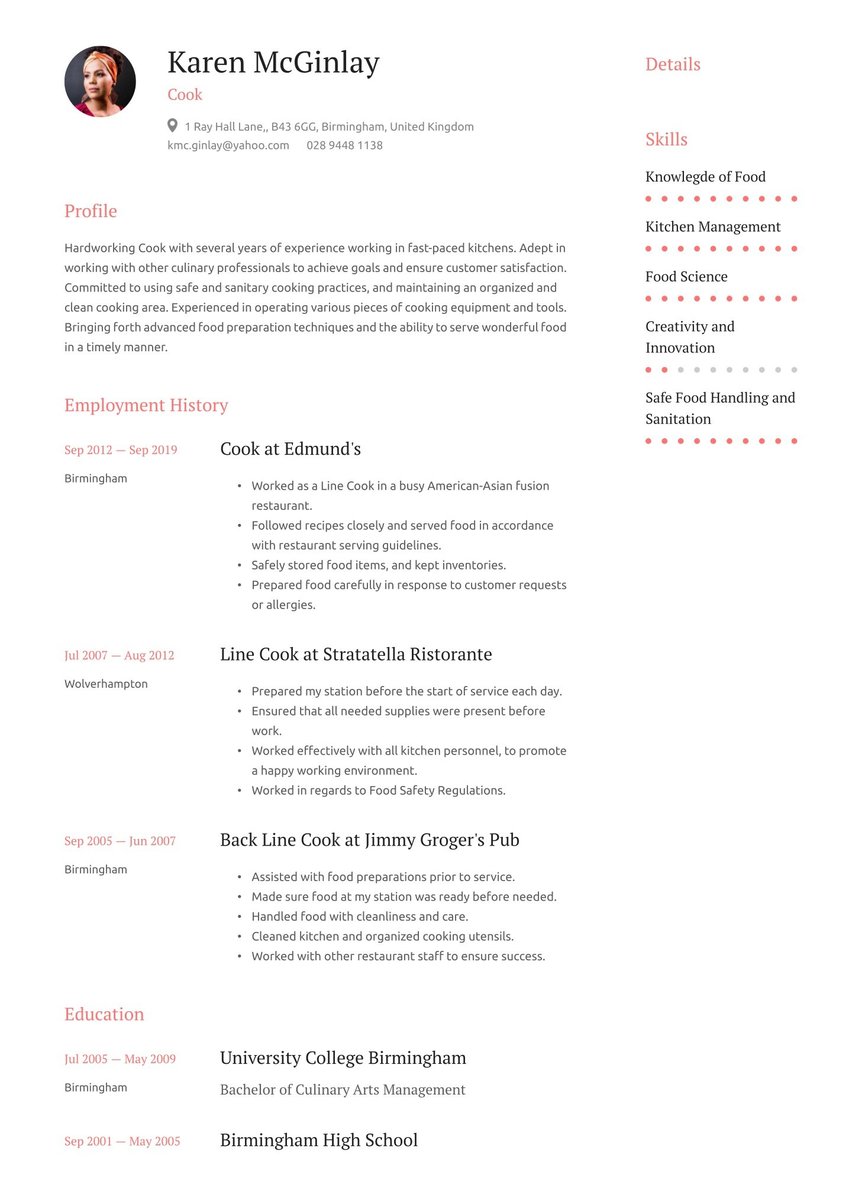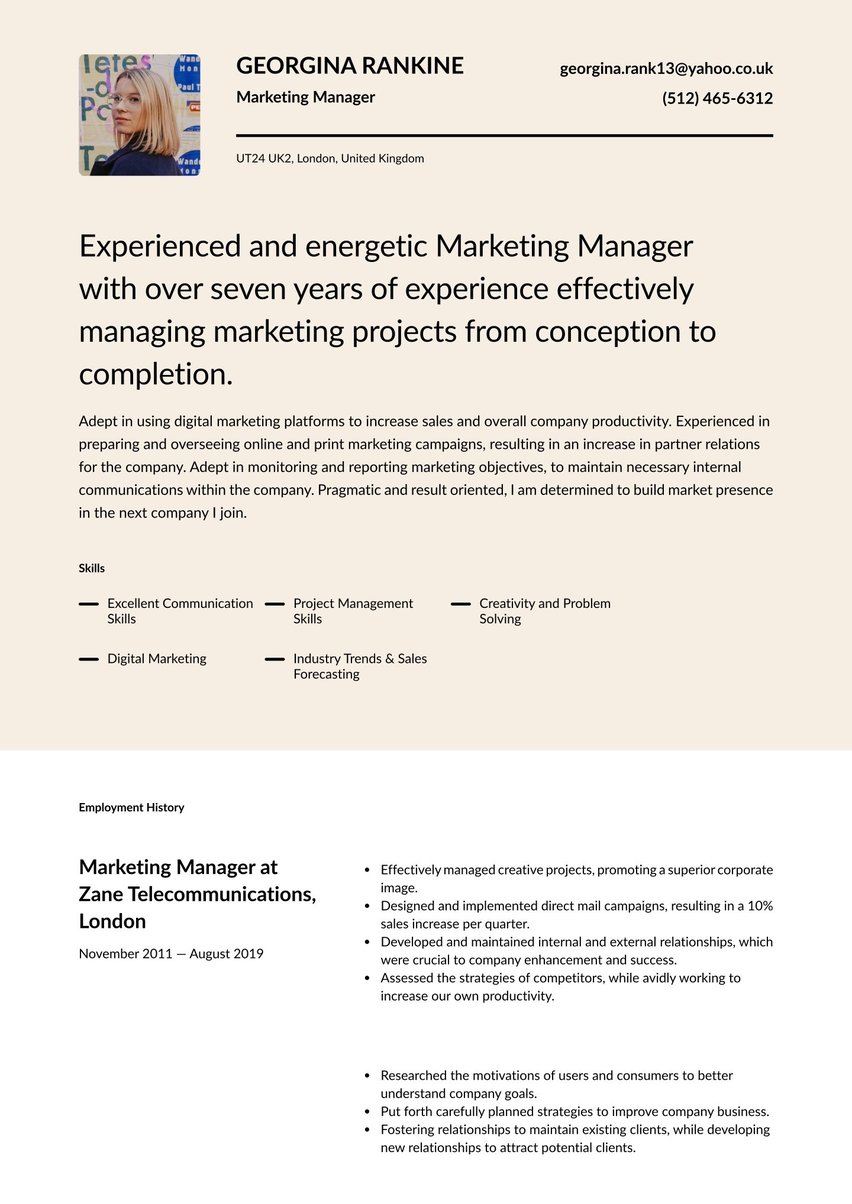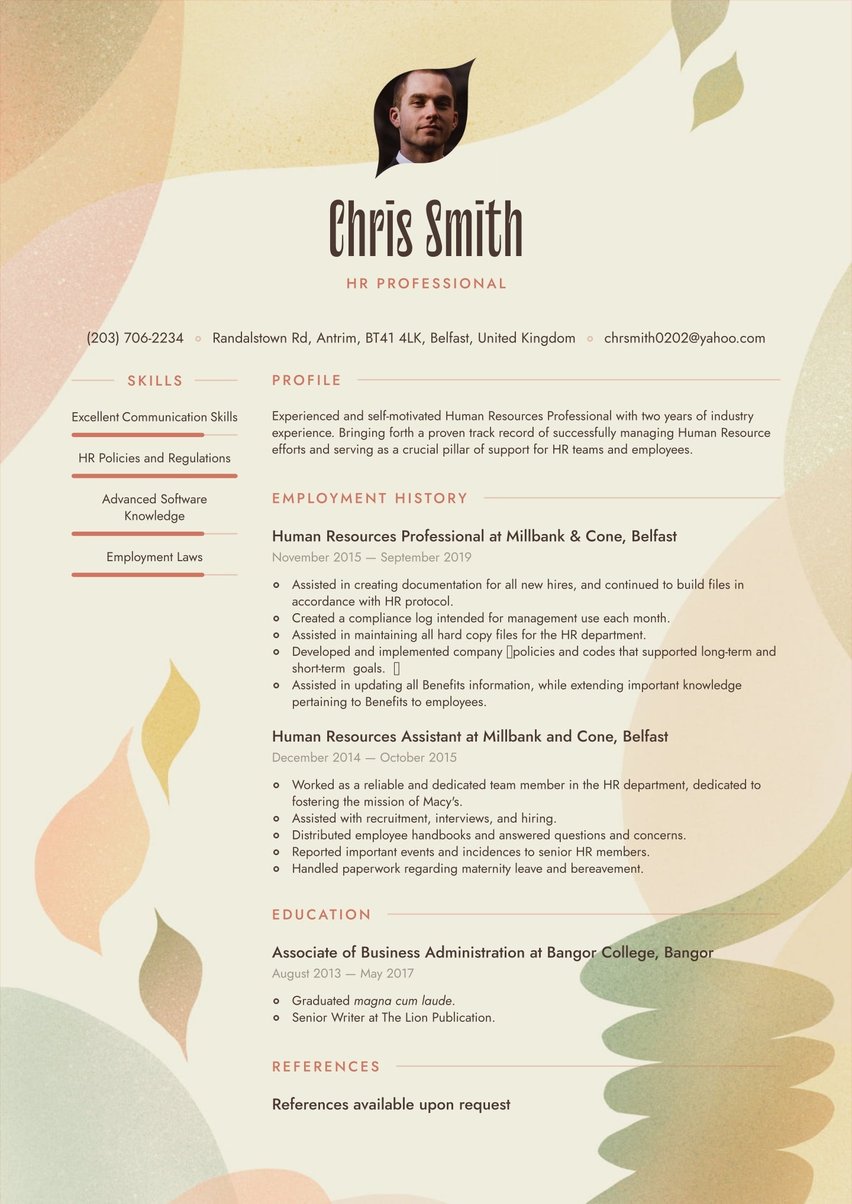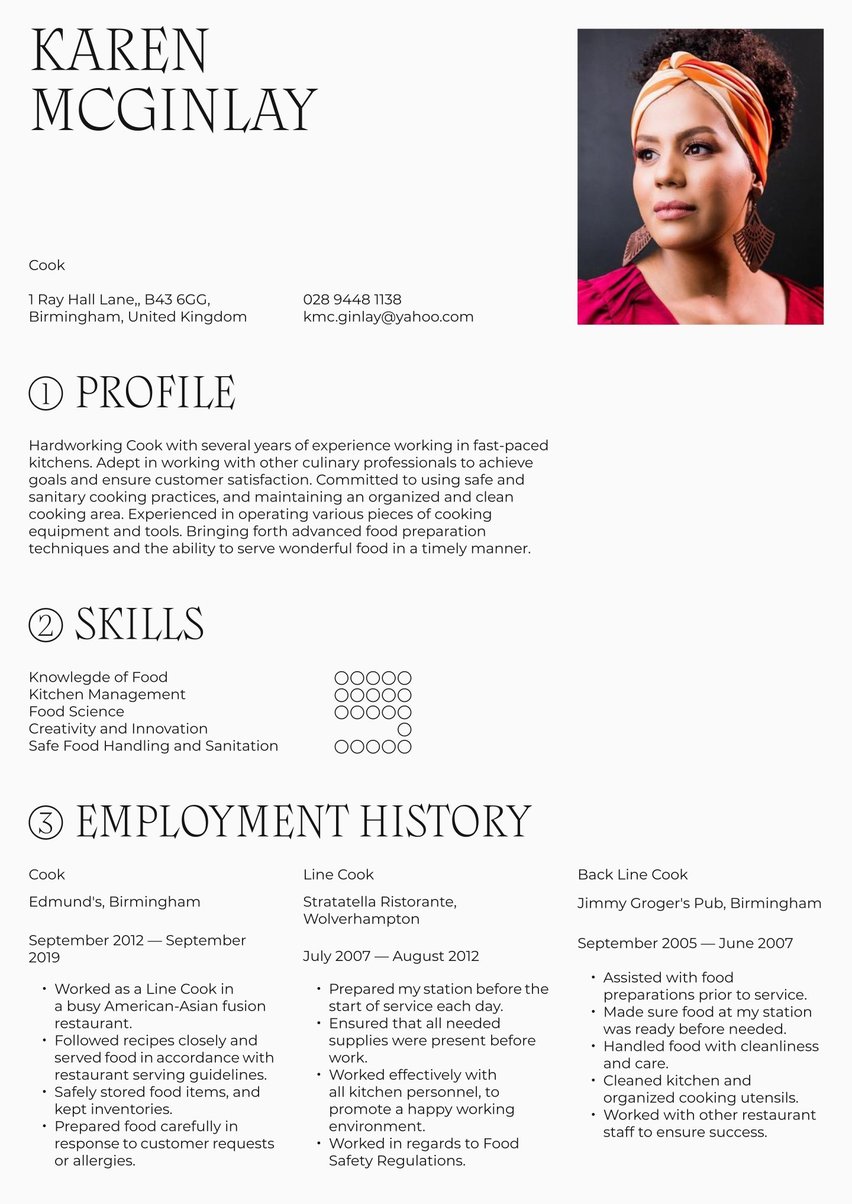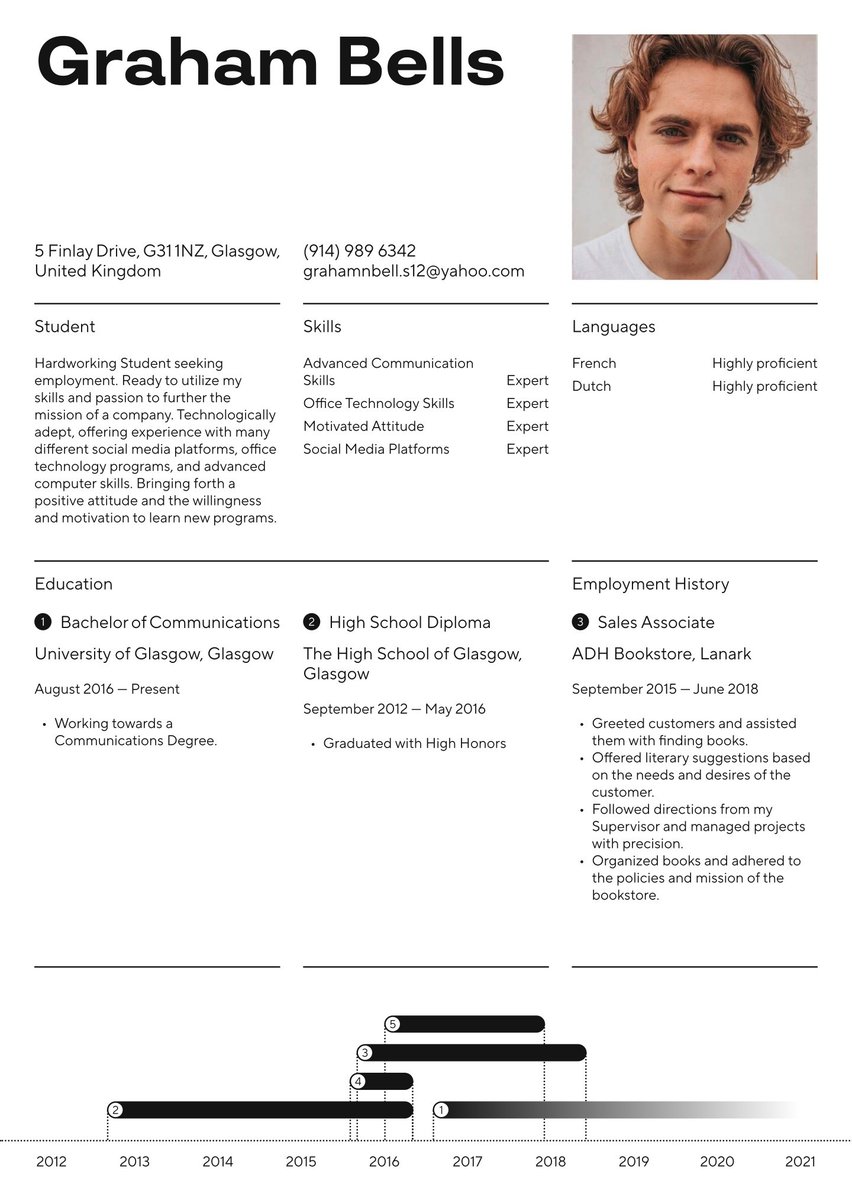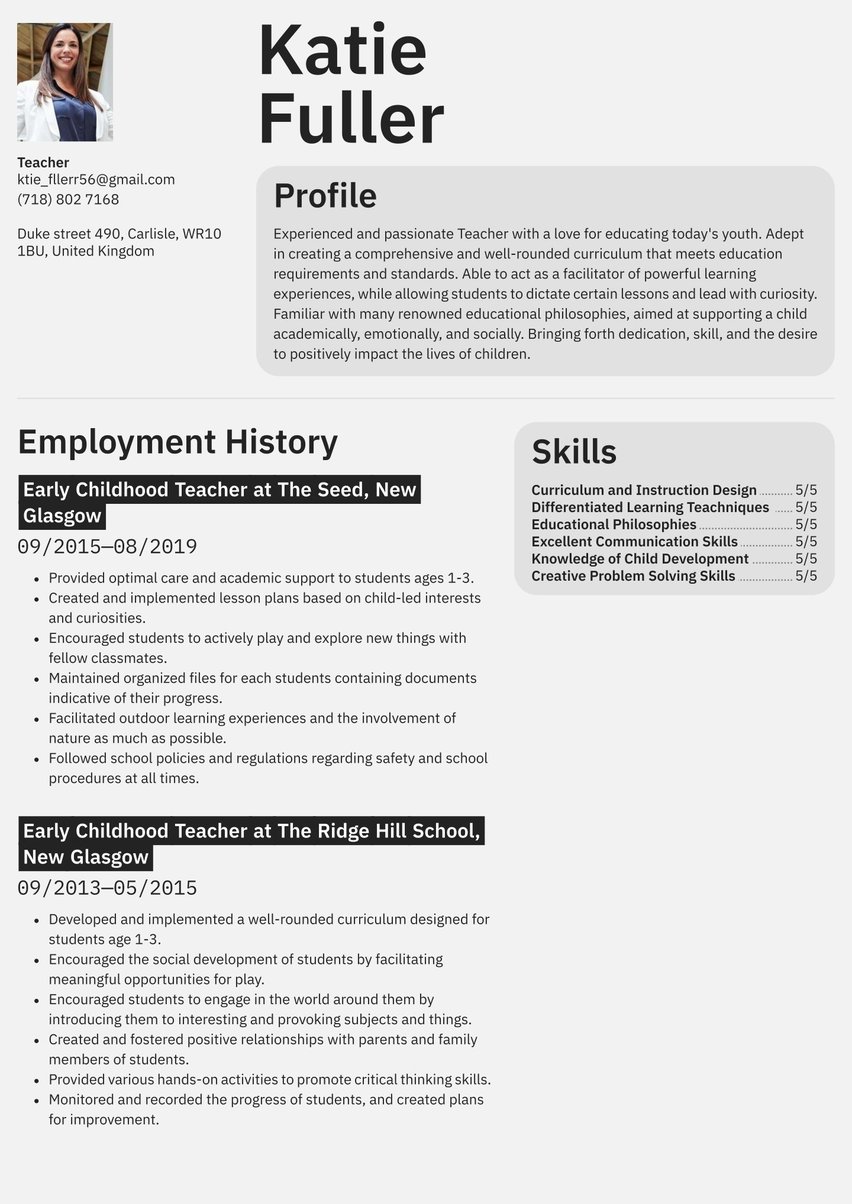Client focussed Antitrust Lawyer with 6+ years of experience advising clients and successfully managing all legal aspects of mergers, joint ventures, and acquisitions. My merger control experience spans a vast array of industries, including the oil and gas, casino, entertainment, education, and publishing industries, among others.
03/2018 - present, Lawyer, Scotchbank LLC, Glasgow
- Successfully represent financial institutions, public companies, and asset management firms involved in government investigations and litigation matters arising out of alleged securities law violations.
- Represent clients involved in a variety of commercial litigation matters.
- Provide preemptive guidance and tailored training to clients regarding business transactions and corporate compliance programs.
- Advise clients in accounting malpractice disputes, property disputes, employment disputes, and more.
- Effectively counsel clients in connection with ongoing disputes.
- Properly advise clients on risk mitigation and compliance matters that arise in an ever-changing international regulatory landscape.
04/2016 - 02/2018, Lawyer, Lederman & Ganders LLP, Glasgow
- Recognised by Glasgow Superior Lawyers as a “Rising Lawyer” in business litigation and antitrust for three consecutive years from 2018 to 2021.
- Represented clients in various commercial litigation matters, and successfully ensured observance with competition law, anti-corruption law, privacy law, and other applicable regulatory regimes.
- Successfully counselled and represented clients involved in high-profile matters across a wide breadth of industries.
- Negotiated with opposing parties to reach resolutions in a timely manner, often avoiding the need for litigation.
- Achieved a 90% settlement rate over the course of 4 years.
09/2011 - 05/2014, Law (LLB), University of Glasgow, Glasgow
- Including the Solicitors Qualifying Examination (SQE)
- English
- French
- Antitrust Counseling
- Commercial Litigation
- Compliance Counseling
- Litigation & Risk Management
- Effective Negotiation
- Interpersonal Communication Skills
Lawyers are masters of persuasion. Your research and reasoning skills are second to none, and you likely have a silver tongue to match. You may think that convincing someone of your professional worth through a lawyer CV would come easily to you.
At Resume.io, we know the truth is more complicated. Regardless of your experience, recounting your professional journey on a single document can feel reductive, or maybe you struggle to pen down your achievements in the first place. We get it. It seems hard.
Resume.io has a library of CV guides and dozens of CV examples to make it easy for you to build a CV that successfully makes your case. This CV guide, along with the corresponding CV example will cover the following topics:
- What does a lawyer do?
- How to write a lawyer CV (tips and tricks)
- The best format for a lawyer CV
- Advice on each section of your CV (summary, work history, education, skills)
- Professional CV layout and design hints.
Top law graduates are on the rise
According to the Law Society, the first class degrees being handed to UK law graduates from 2019-2020 was at a ten-year high. Whether you’re heading into a graduate training scheme or competing for a job as a qualified lawyer, it’s more important than ever to have a strong CV that sets you apart from your colleagues.
What does a lawyer do?
Whether you are a barrister or a solicitor, lawyers are responsible for preparing and presenting legal cases. You may dedicate your practice to a number of types of law, ranging from family law to intellectual property, human rights to criminal law.
Many lawyers will find that their career spans more than one of these categories. The day to day of a lawyer will depend entirely on your grade and the type of law you work with. While a lawyer working as a trainee solicitor may be proofreading case documents and typing up meeting notes, an experienced barrister will spend a lot of time appearing in court.
How to write a lawyer CV
Just like a winning case, a job-winning lawyer CV builds its arguments as an irrefutable story. Your goal is to present the evidence so the hiring manager draws the conclusion that you are the right person to fill this job opening. You’re used to following strict procedures, so it should come as no surprise that there are some criteria to uphold.
There are certain sections that every strong CV includes. You will learn through the rest of this guide how to fill out each section properly. However, it’s important to start out by building the bare structure of your lawyer CV.
Your lawyer CV should contain the following elements:
- The CV header
- The CV summary (aka profile or personal statement)
- The employment history section
- The CV skills section
- The education section
Choosing the best CV format for a lawyer
The majority of job seekers will find that the best CV format for a lawyer will be reverse chronological. This prioritises your previous professional experience and will constitute the main part of your CV.
If you are writing a CV for a training contract or you still don’t have that much experience as a lawyer yet, you can consider an alternative such as the functional format or a hybrid. However, it’s important to remember that even if you are a new lawyer, your training has provided you with a lot of useful case studies. So don’t underestimate your skills and put your best foot forward when writing your CV.
If you want some examples on how to make alternative skills and experiences stand out on a CV sample that is not strictly related to being a lawyer, check out some of our other CV examples:
CV summary example: your opening statement
The first thing a hiring manager will see on your CV underneath your name and details is your CV summary. Your summary — also known as your profile — is an introduction to who you are as a lawyer. It should be several sentences long at most, and hook the hiring manager as to why you are the lawyer that answers their needs.
Do you have any trademark skills or experience that sets you apart from other lawyers? Or perhaps you have an achievement that makes a strong case for you as a top candidate in your field. Your summary is the place to highlight why you are a great candidate for this post.
The best way to do this is to adjust your CV summary slightly for each job application you make. Check that the language you use corresponds with the tone of voice of the job ad, or general language of the company. The points you include should respond to the needs the firm you’re applying to has highlighted.
Employment history sample: make your case
Now that you’ve set the scene, it’s time to deep dive on why your experience matches this job opening. Your work history as a lawyer is the best evidence you have of this. Take the time to list out the firm you worked at, its location, your position, and the dates worked.
Underneath this you can list the reasons why this experience was pertinent to this job application. This should take the form of a bullet point list including your responsibilities, and any job highlights or achievements that were completed during your time there. Remember to use concise and descriptive language to get your point across. This section is all about your persuasive writing skills.
Lawyer, Scotchbank LLC, Glasgow
March 2018 - Present
- Successfully represent financial institutions, public companies, and asset management firms involved in government investigations and litigation matters arising out of alleged securities law violations.
- Represent clients involved in a variety of commercial litigation matters.
- Provide preemptive guidance and tailored training to clients regarding
- business transactions and corporate compliance programs.
- Advise clients in accounting malpractice disputes, property disputes,
- employment disputes, and more.
- Effectively counsel clients in connection with ongoing disputes.
- Properly advise clients on risk mitigation and compliance matters that arise in
- an ever-changing international regulatory landscape.
Lawyer, Lederman & Ganders LLP, Glasgow
April 2016 - February 2018
- Recognised by Glasgow Superior Lawyers as a “Rising Lawyer” in business litigation and antitrust for three consecutive years from 2018 to 2021.
- Represented clients in various commercial litigation matters, and successfully ensured observance with competition law, anti-corruption law, privacy law, and other applicable regulatory regimes.
- Successfully counselled and represented clients involved in high-profile matters across a wide breadth of industries.
- Negotiated with opposing parties to reach resolutions in a timely manner, often avoiding the need for litigation.
- Achieved a 90% settlement rate over the course of 4 years.
CV skills example: your legal toolkit
An effective skills list on your CV uncovers what else you can bring to the table as a lawyer. It should be a cohesive part of the professional story your CV presents. However, it can also be a strategic addition to provoke curiosity with the hiring manager so they want to interview you.
As well as excellent material for a potential interview, this section can help you to beat the Application Tracking System (ATS). Only the top applicants’ CVs make it to be seen by the hiring manager these days. To make sure that your lawyer CV isn’t thrown out like a bad case, you need to make sure you use the keywords the digital ATS algorithm is likely scanning for.
To identify these keywords, take a look at the key experience and skills asked for in the job ad. The language used and repeated here is likely to be your ticket to clearing the bar.
Finally, make sure that your CV skills section includes a good mix of soft and hard skills. As a lawyer, you’ve likely picked up a few technical skills along the way. These are your hard skills. However, in a job where nuance and ambiguity is everything, the way that you carry out these tasks — also known as your soft skills — are equally as important.
- Antitrust Counseling
- Commercial Litigation
- Compliance Counseling
- Litigation & Risk Management
- Effective Negotiation
- Interpersonal Communication Skills
Speak frankly about your language skills
Foreign languages are a great asset in most types of law. Don’t forget to add any languages that you speak in your skills section, or even add a separate section especially dedicated to the languages under your belt and to what level you know them.
Lawyer CV education example
Law is one of the career paths that require years of studies in order to practise legally. Don’t neglect to include your studies and training on your CV. The education section of your lawyer CV should include the name of your qualification, the institution you studied at, as well as its location, and the dates you attended.
You can include your training contract under your previous employment section. However, other courses completed to become a qualified lawyer should be listed in this section. Much like the previous section, your education should be listed in reverse chronological order. That means the most recent experience will be at the top and the easiest to see.
Similarly, if you have any impressive experience you want to highlight from your time studying or completing your training, you can add this as a bullet point underneath the name of the institution or firm.
If you beat other students on access to a grant or scholarship, or you finished in the top percentile of lawyers in training then let your prospective employer know about it!
Law (LLB), University of Glasgow, Glasgow
September 2011 - May 2014
- Including the Solicitors Qualifying Examination (SQE)
CV layout and design: dress for the job
They say to dress for the job you want, rather than the one you have. A lawyer wants to make a professional first impression and the visuals of your lawyer CV are no different. Take the time to make sure that your CV is properly formatted and uses a clear design.
The majority of law firms won’t be interested in you showing off your creative skills on this aspect, so it is best to stick with a structured layout and a simple colour palette. If you prefer to focus on the content of your lawyer CV and leave the design to the pros, consider using one of our field-tested CV templates. The corporate or traditional CV templates would be a great option.
Key takeaways for a lawyer CV
- First impressions matter. Make a strong opening statement with your CV summary.
- Match your language and tone to the firm where you’re applying and clear that ATS.
- The skills section could help pique the hiring manager’s interest and get you that interview.
- Adjust your CV sample for each job application to maximise your chances of success.

